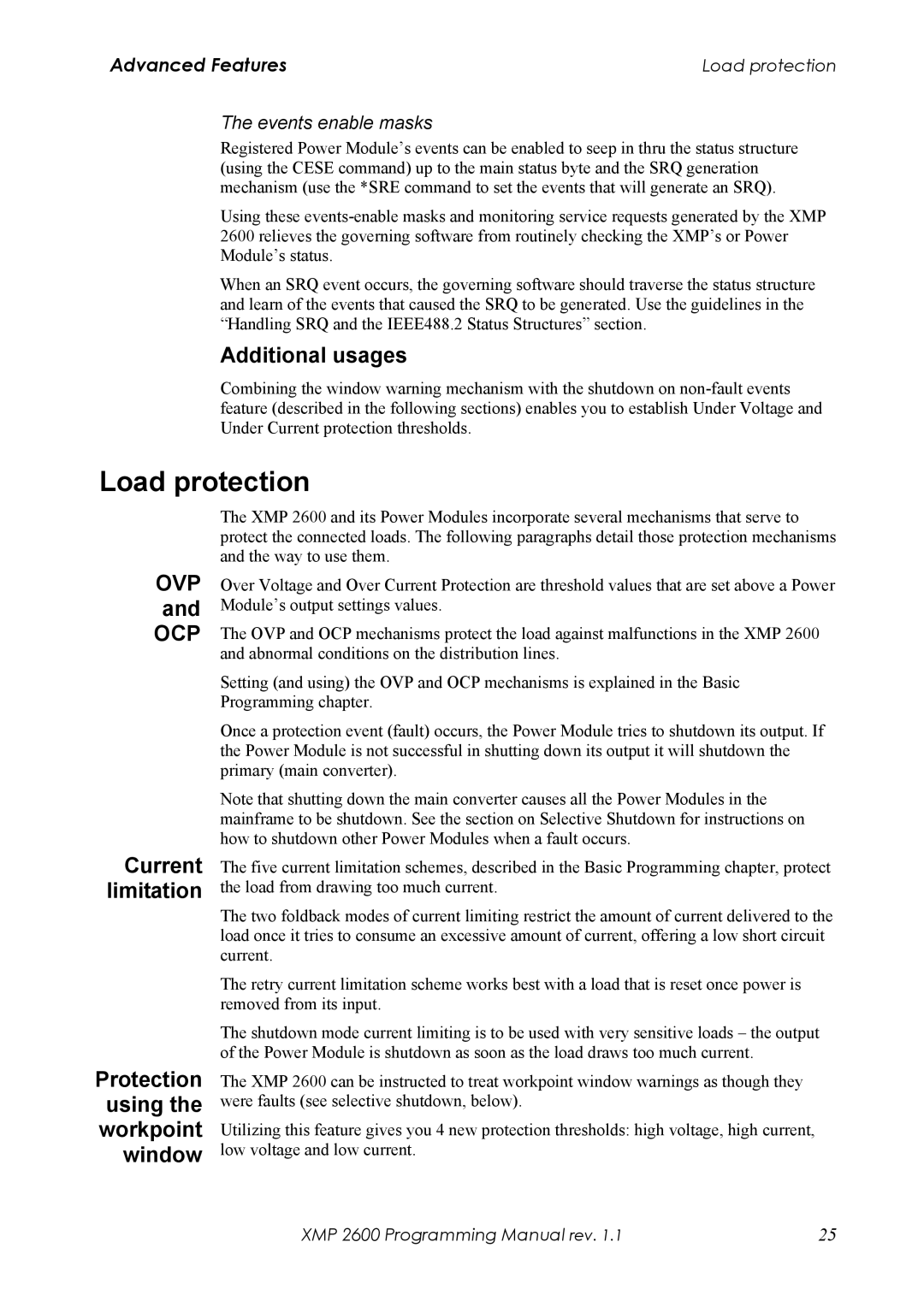Advanced Features | Load protection |
The events enable masks
Registered Power Module’s events can be enabled to seep in thru the status structure (using the CESE command) up to the main status byte and the SRQ generation mechanism (use the *SRE command to set the events that will generate an SRQ).
Using these
When an SRQ event occurs, the governing software should traverse the status structure and learn of the events that caused the SRQ to be generated. Use the guidelines in the “Handling SRQ and the IEEE488.2 Status Structures” section.
Additional usages
Combining the window warning mechanism with the shutdown on
Load protection
OVP and
OCP
Current limitation
Protection using the workpoint window
The XMP 2600 and its Power Modules incorporate several mechanisms that serve to protect the connected loads. The following paragraphs detail those protection mechanisms and the way to use them.
Over Voltage and Over Current Protection are threshold values that are set above a Power Module’s output settings values.
The OVP and OCP mechanisms protect the load against malfunctions in the XMP 2600 and abnormal conditions on the distribution lines.
Setting (and using) the OVP and OCP mechanisms is explained in the Basic Programming chapter.
Once a protection event (fault) occurs, the Power Module tries to shutdown its output. If the Power Module is not successful in shutting down its output it will shutdown the primary (main converter).
Note that shutting down the main converter causes all the Power Modules in the mainframe to be shutdown. See the section on Selective Shutdown for instructions on how to shutdown other Power Modules when a fault occurs.
The five current limitation schemes, described in the Basic Programming chapter, protect the load from drawing too much current.
The two foldback modes of current limiting restrict the amount of current delivered to the load once it tries to consume an excessive amount of current, offering a low short circuit current.
The retry current limitation scheme works best with a load that is reset once power is removed from its input.
The shutdown mode current limiting is to be used with very sensitive loads – the output of the Power Module is shutdown as soon as the load draws too much current.
The XMP 2600 can be instructed to treat workpoint window warnings as though they were faults (see selective shutdown, below).
Utilizing this feature gives you 4 new protection thresholds: high voltage, high current, low voltage and low current.
XMP 2600 Programming Manual rev. 1.1 | 25 |
